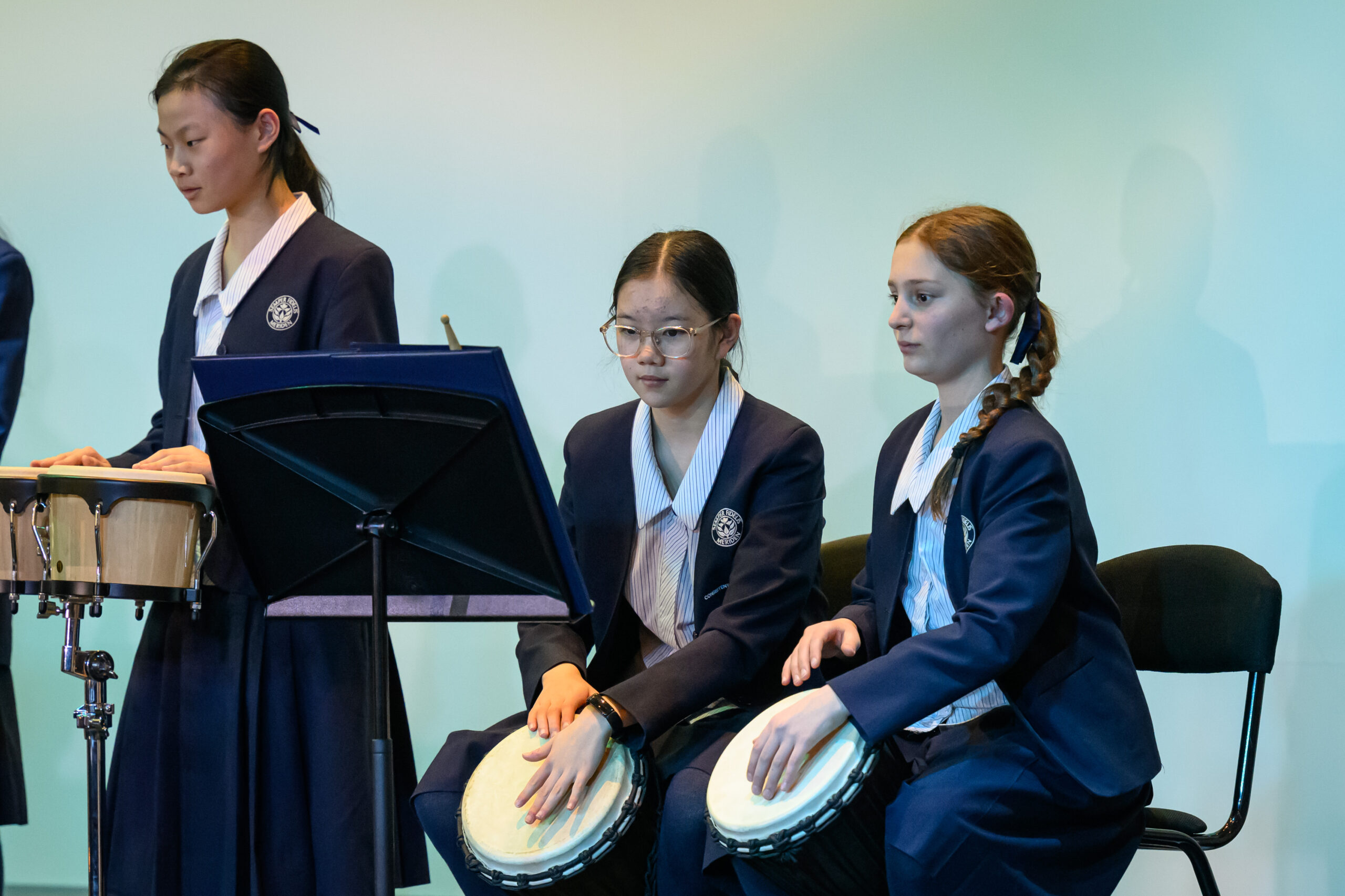The Music program at Meriden has gone from strength to strength in recent times. The Amadeus program has helped nurture some of Sydney’s brightest young talents, and our ensembles regularly perform at the highest levels at concerts, competitions, and eisteddfods.
This level of quality is evident for anyone who has attended a performance by Meriden students. It is delightful to visit any of our regular programs, like the Amadeus Recital each term, or any of the number of concerts and events throughout the year.
However, the true strength of the program does not lie in the awards and accolades reserved mainly for our top performers. Every girl who picks up a musical instrument at Meriden enjoys the benefits of a flourishing musical program, whether it’s their first time or the thousandth (or more) time.
During seasons of preparation for major concerts, we see girls taking immense joy from their hard work and dedication. Making music with others is important for the soul. It makes us feel better in mind, body and spirit. It lifts our gaze to something bigger and greater than ourselves.
Importantly, this is true for any young musician, regardless of their level of ability. Even the simplest melody can bring about joy for both listener and performer.
The act of making music together is a key way in which we support the wellbeing of the girls at Meriden. Whether it be in the Symphony Orchestra, singing in Chapel, or even at dance battles in tutor group: where there is music, there is joy.
This approach at Meriden is supported by key research findings. In fact, music-making is not just beneficial for students’ wellbeing, but for their academic performance as well.
Research from the University of Kansas (2014) showed that students who engaged in music programs outperformed their peers who did not in every indicator, including grade-point average, graduation rate, attendance and discipline.
A study published in the Journal of Educational Psychology (2019) further connected the academic link, concluding that students who learned to play a musical instrument in primary school and continued playing in high school scored significantly higher in academic tests and were about one academic year ahead of their non-music peers. Further research found that music education develops the emotional intelligence of participants. Those with higher emotional intelligence had a better chance of not just performing well academically but also of improving and maintaining their mental health.
We certainly appreciate the gift of music at Meriden and happily support the girls to become involved in the musical life of the School.

